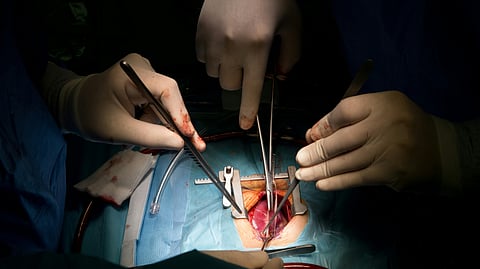Lopez is now thriving with her new heart, liver, and kidney, and has been in remission from cancer for 20 years.
“I feel like I was reborn again,” said Lopez. “I have more energy, my heart beats much stronger and my hands are even warmer. I’m incredibly grateful for my organ donor and their family. Because of their selfless decision, I’ve been given a second chance at life and can start planning for my future.”
Despite being blind with multiple medical challenges, Lopez never tells herself there’s something she can’t do.
“If I have to go somewhere I use landmarks when traveling on my own,” said Lopez. “My phone has accessibility to access rideshare and social media apps. When cooking for myself I use my hands to locate items on the stove. I cook things like rice, seafood, and spaghetti. It’s just about setting my mind to it.”
After recovering from surgery, she plans to attend Loyola University Chicago to study criminal investigation. She hopes to pursue a career in forensics and dreams of one day collecting evidence at crime scenes.
Lopez and her fiancé, Christian, are now planning a wedding in California and hope to tie the knot in 2026.


